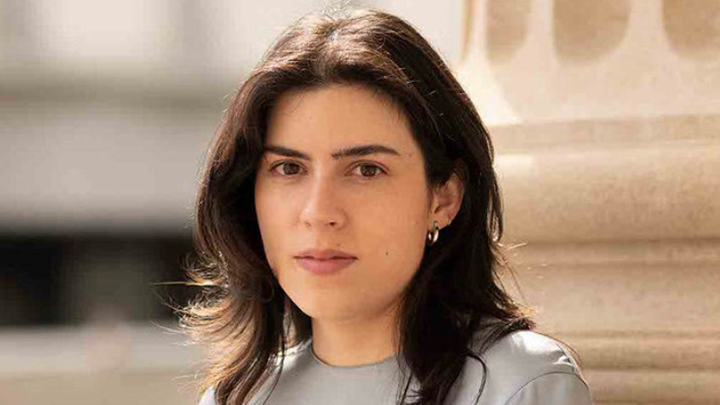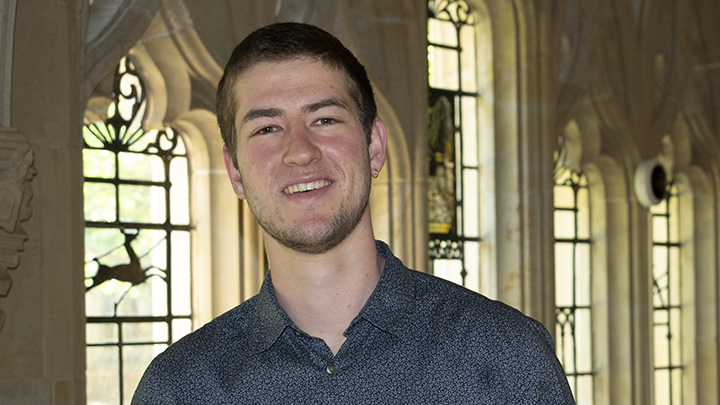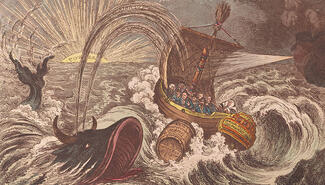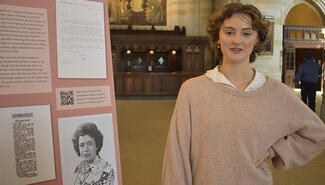Library Map Prizes awarded for creative visual presentations of scholarly research
The Library Map Prize selection committee selected two students as winners of the 2023 prizes. The Map Prize recognizes students whose senior essays or projects make use of one or more maps or charts in substantive ways. Students may create the maps or refer to maps found online or in the library’s special collections. These prizewinning seniors illustrated their essays with maps they made themselves, analyzing and fully integrating them throughout the narrative in support of each essay’s thesis.
Juanita Castaneda Norena (Pauli Murray College)
The committee judges awarded first prize to Castaneda Norena for the essay “The Myth of Solidarity: The Formalization of Segregation and Externalization of Class through the Estate System in Cali, Colombia.” They noted that this “exceptionally creative essay” skillfully integrated archival and newly created maps, scholarly research, and collage to examine social issues. Estrato, a caste-adjacent system in the city of Cali, Colombia, was intended to create solidarity by distributing utility costs based on income. As the judges note, Castaneda Norena’s “visual methodology” enables the reader to understand the history of Cali, its present-day issues, and how estrato has instead furthered inequality and segregation. Castaneda Norena’s advisor was Assistant Professor Joyce Hsiang, department of Urban Studies, Yale School of Architecture. Read Juanita Castaneda Norena’s full essay.
Adin L. Ring (Saybrook College)
The committee awarded Ring honorable mention for his essay “Harnessing Citizen Science and Collections Data for Invasive Plant Surveillance.” Ring worked with maps to explain the differences in the reported distribution of invasive plants according to three U.S. sources: museum specimen collections, voluntary citizen science efforts, and monitoring by governmental or nonprofit agency. In his research, Ring manipulated, cleaned, and analyzed large sets of data, concluding that results from each source showed collecting bias. The judges stated that “this essay addresses a timely topic of interest to a wide spectrum of people—from backyard gardeners to conservationists and professional scientists.” Ring’s advisor was Professor Walter Jetz, Department of Ecology and Evolutionary Biology and Department of Environmental Studies. Read Adin Ring’s full essay.
The first-prize award is $500; the honorable mention prize is $250. Both prizewinners received certificates of award at their residential colleges’ commencement ceremonies. Their winning essays have been published in EliScholar, the library’s publishing platform for Yale University researchers who wish to disseminate their work to a wide audience.
This year, the Library Map Prize committee members were Kayleigh Bohemier, science research support librarian; Kelly Blanchat, undergraduate teaching and outreach librarian; Lori Bronars, Life Sciences librarian; Roberta L. Dougherty, Librarian for Middle East Studies; Miriam Olivares, GIS librarian and prize chair; and Anu Paul, Digital Imaging Manager, Preservation and Conservation Services.
“I love participating in the library’s Map Prize,” Blanchat said, “because I get to see a wide breadth of student research, from the humanities to the sciences.”
The submission process for next year’s prizes will open in late May 2024. “We hope deans and chairs will actively assist us in promoting the prize next year,” Olivares said, “to ensure that seniors in their departments and residential colleges are considered for this prestigious award.”
Read more about the Library Map Prize.
Read about all Yale Library prizes.
—Deborah Cannarella




